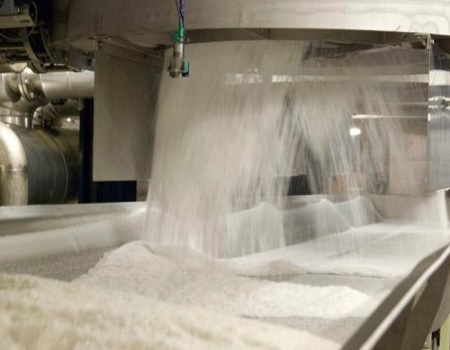[ad_1]
The National Sugar Development Council (NSDC) has disclosed that the refining capacity of the Nigerian sugar sector is about 3.5 million metric tonnes in 2022.
Speaking in Abuja on Wednesday, the Executive Secretary of the NSDC, Mr Zacch Adedeji, said the sugar currently being refined in the country was near twice the 1.7 million consumption limit in a year, reaching 3.5 million metric tonnes in 2022.
He said the agriculture aspect of the master plan had not done well but expected significant growth through the revised edition of the development plan.
Adedeji acknowledged the many challenges facing the sugar sector in Nigeria, but assured that measures have been put in place to resolve all issues hindering the growth of sugar production in the country.
He stated that under the reviewed Nigerian Sugar Master Plan (NSMP), government has facilitated ease to access a friendly environment that will guarantee growth to self-sufficiency by 2023.
“Our sugar sector was a huge revenue earner for the Federal Government. The major sugar companies produced at full capacity and provided jobs for both skilled and unskilled job seekers.
“In fact, young job seekers and graduates desirous of building their careers daily thronged the premier sugar companies. The sugar sector of that era contributed greatly to Nigeria’s industrialisation policy, especially as it relates to growing what we eat and eating what we grow.
“But the sad story in the sector has changed for the better and showed some flashes of rebirth with the launch of an ambitious and well-thought-out 10-year-long policy to drive and revamp the sector in order to restore Nigeria’s lost glory as far as sugar production on the continent is concerned.
“The policy, code-named, the Nigeria Sugar Master Plan (NSMP) was birthed in 2012, but actual implementation began in 2013. With the launch of the NSMP, the once comatose, moribund and neglected sugar sector roared back to life as local and international investors picked interest in the sector.
“As captured in the master plan, Nigeria’s annual sugar consumption of 1.7 million metric tonnes would be met after 10 years. A total of 250,000 hectares would be required for cane cultivation, 28 factories would be established and over 100,000 direct and indirect jobs would be created for Nigerians.”
He explained further that “as of today, a total of four companies have signed unto the Backward Integration Programme (BIP) of the NSMP. The companies are Dangote Sugar Refinery, BUA Sugar Refinery, Golden Sugar Refinery and KIA Africa Group. These BIP operators have their sites located in states across Nigeria where there are providing jobs for Nigerians and contribute to the economic fortunes of their host communities.
“The Dangote Sugar Refinery has its BIP sites in Numan Adamawa State and in Tunga in Nasarawa state, while the BUA Group has hers in Lafiagi, Kwara State, Golden Sugar BIP is located in Sunti, Niger State while that of KIA Africa is in Bacita, Kwara State.
“Phase 1 of the master plan which began in 2013 reached its crescendo in the first quarter of 2023, the Federal government in a rare show of commitment to its economic diversification policy through the promotion of industrialisation has graciously approved Phase 2 of the policy, with actual implementation to begin in 2023 through 2033.
“We shall in the shortest possible time attain self-sufficiency in sugar production, and subsequently export to countries within the continent. As provided by the Phase 2 Plan, we shall tinker a bit with what we had in the past.
Adedeji said “essentially, our next phase of activities would be anchored on verifiable data and innovation to make our work seamless. Going forward, the annual raw sugar quota allocation to operators would be based on their performances in the outgoing year.
“So, we call on our operators to buckle up as the old order of allocating raw sugar quota based on size of the refinery has changed based on the approved NSMP Phase 2.”
ALSO READ FROM NIGERIAN TRIBUNE
[ad_2]








